Why not? Free meat for the girls.
After watching my girls go hog wild for the first piece I figured that I could cook up the second roast for us. If we didn't like it, the hens would not object to a bovine feast.
Unfortunately for them, the pot braise was simply too good to share. Sorry, ladies. No more cast-off meat for you!
If you find yourself with a tough or super-lean cut of beef, braising it will bring out its best qualities. Why? Cooking lesser or tough cuts of meat in a long, low heat allows the connective tissues to break down into yumminess. Here's a simple way to cook up that piece of tough, organic, grass-fed beef. Your house will smell divine and the leftovers will be even better.
Ingredients
A hunk of beef large enough to feed your crowd
Olive oil
1 onion, chopped
4 garlic cloves, minced
1/2 cup flour
1/2 bottle red wine
Twig of fresh rosemary, diced to yield ~3 tbsp, or 1 tbsp dried rosemary
1 quart beef broth
As many carrots as you feel like eating
Salt and pepper
Tomatoes: either get 1 can of plum tomatoes (with liquid) or rough-chop 2-3 fresh ones
Method
1. In an oven-proof pot, sear the beef over medium-high in some olive oil. You'll know the beef is ready to flip when it releases easily from the pan bottom. Remove from pan and set aside.
2. Add more olive oil, maybe 2 tbsp or so, and decrease the heat to medium-low. Add onions and cook until brown and translucent. Then add the garlic.
3. Throw in the flour. Stir it around until it coats the onions and starts to turn brown, too. It'll happen fairly quickly.
4. Now you get to deglaze the pan! See all the brown gunk on the bottom of the pan? When you add the wine - roughly a half bottle - you're going to lift up all those brown bits and they'll add flavor to the sauce. Because of the flour, the sauce will thicken as well.
Be generous with the wine. It adds flavor.
7. Plop on the lid and put the whole thing into a 275-degree oven for the rest of the day. If you check the meat in 2-3 hours, you'll find that it's rock hard. Leave it for another 2-3 hours and those connective tissues will dissolve, leaving you a hunk of meat that falls off the bone and smells amazing.
Serve with mashed potatoes or a crusty bread.
Optional serving method: cook with potatoes, mushrooms, and any other root vegetable you like. Parsnips would be divine.
This could also be transferred into a slow cooker at step 6. Cook it on low for a mid-week meal that's waiting for you when you return from a long day at work.
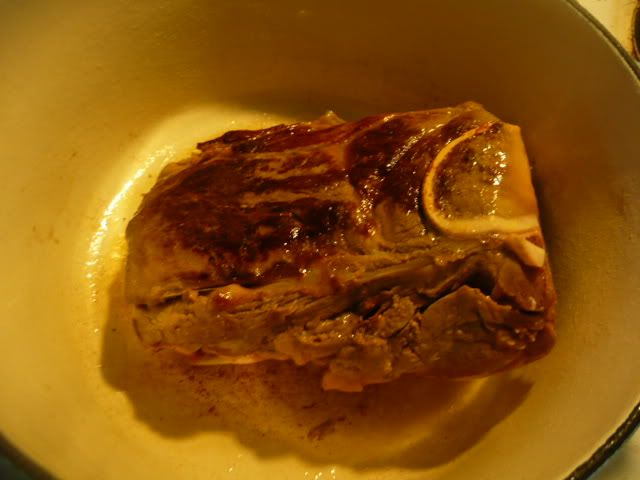
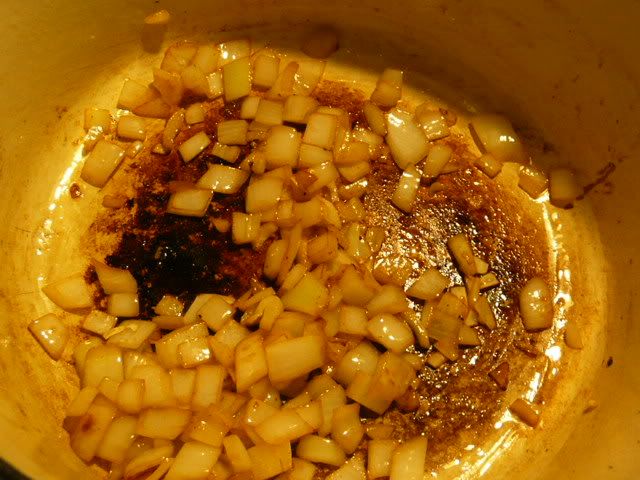
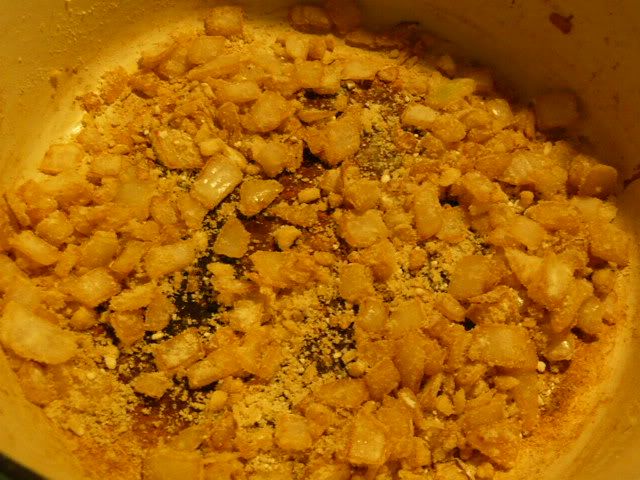
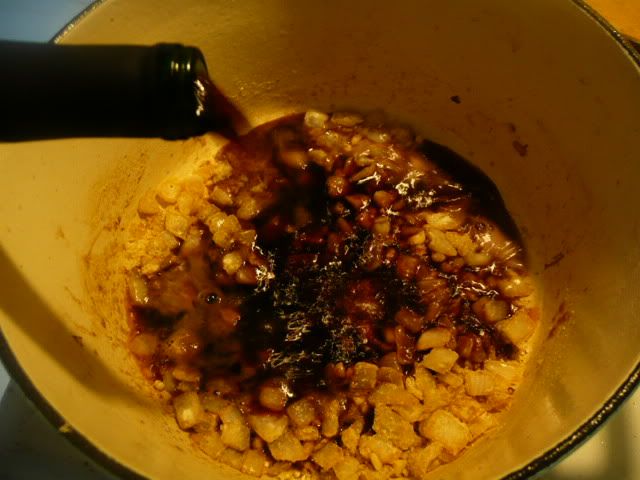
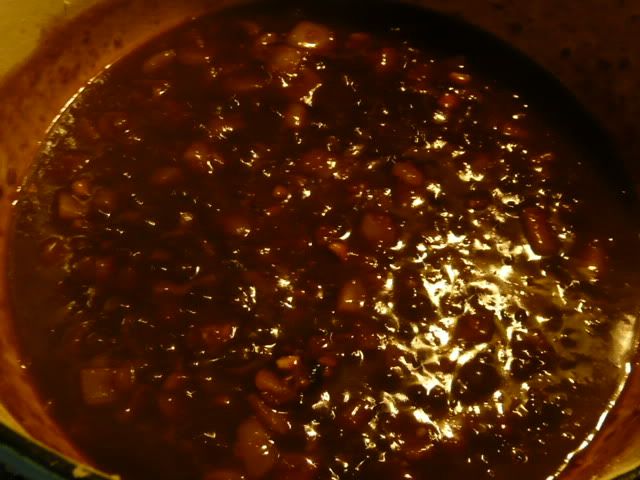
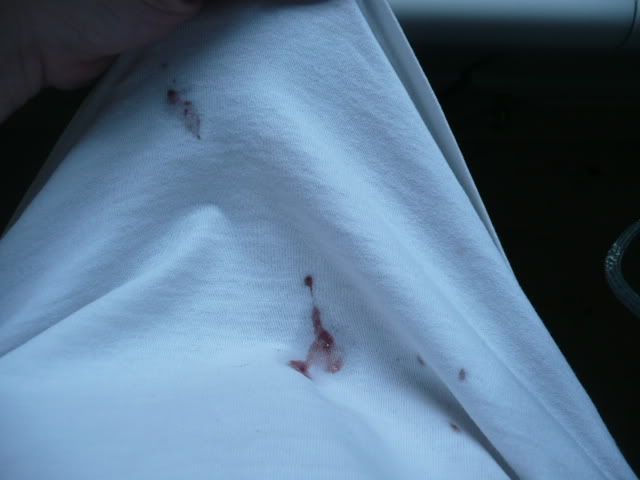
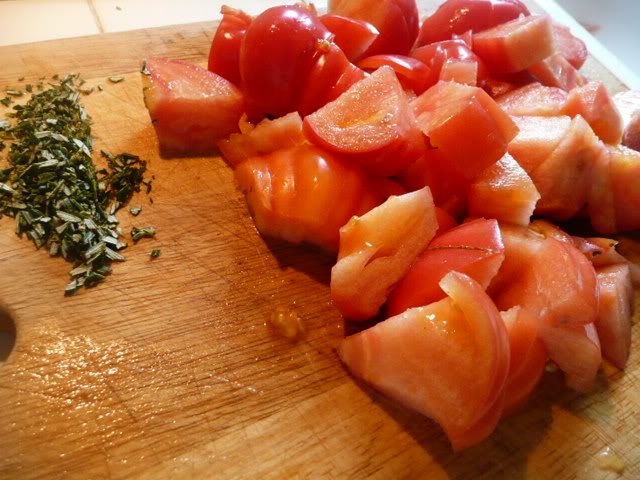
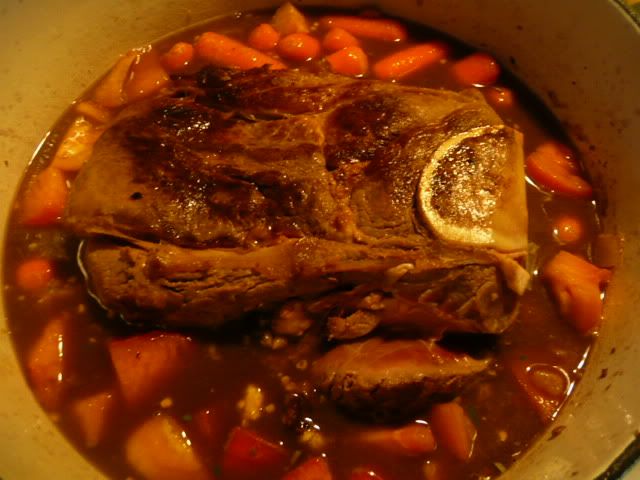
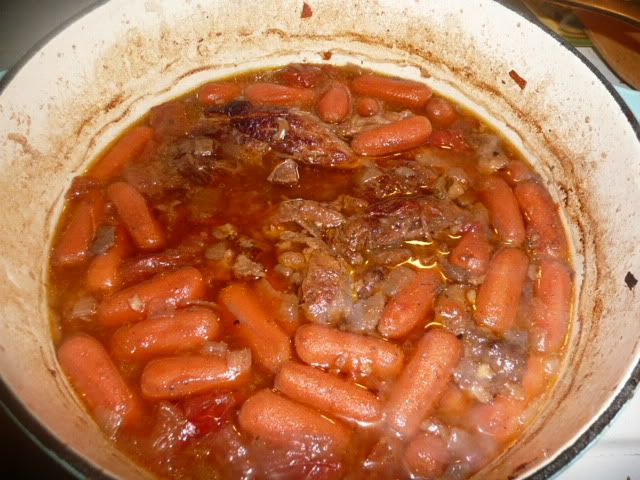
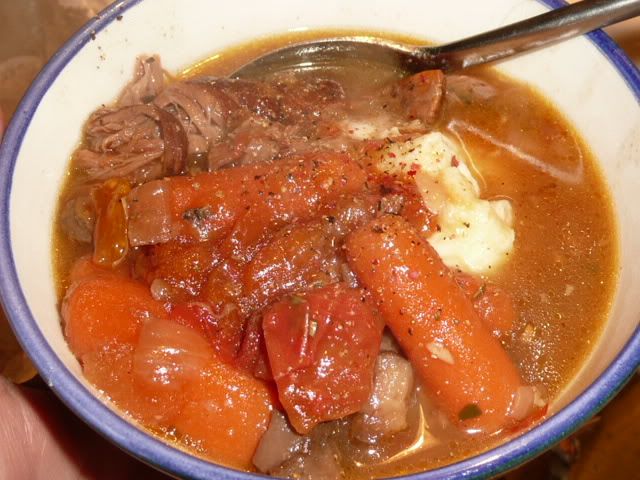
I know this is probably blasphemy, but can I use white wine? Red wine doesn't agree with me, even in cooking.
ReplyDeleteHi Terrie!
ReplyDeleteRather than try white wine, I would omit wine entirely and increase both the broth and tomatoes with their juice. Searing the meat in 1/2 olive oil and 1/2 butter would give a nice flavor as well.
That said, I've got a really yummy rabbit recipe in a white wine sauce that would adapt beautifully for the pork roast tucked away in the freezer. I'll do a version of this recipe with white wine in the near future.
I'm going to do a similar thing with a brisket this weekend. Mmmmmm! I can't wait. Simple but amazing.
ReplyDeleteJ. Werner